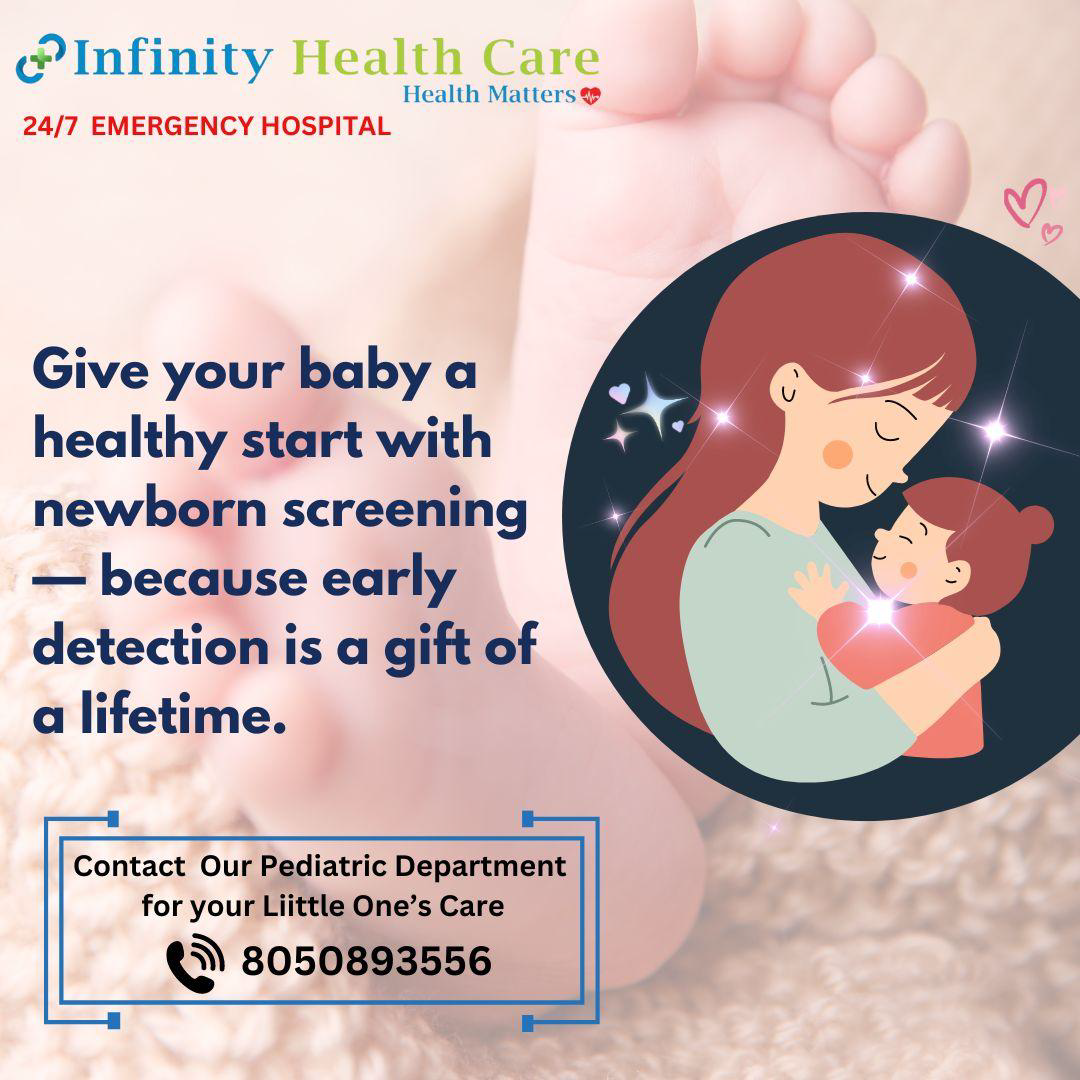September is Newborn Screening Awareness Month, and the 2024 theme is "Breaking Barriers: Inclusive Support for Children with Birth Defects."
Newborn screening is a crucial public health service in India, ensuring that every newborn is tested for specific serious conditions right after birth. This early screening allows doctors to start treatment before any harmful effects can occur, offering the best possible outcomes for the baby.Newborn screening is a public health service that involves testing newborn babies for certain serious and treatable medical conditions. The purpose of this screening is to identify conditions early, often before symptoms appear, so that treatment can be started promptly to prevent severe health problems or even death.
The screening typically involves a few key tests:
The specific conditions tested for can vary by region or country, but common ones include phenylketonuria (PKU), cystic fibrosis, sickle cell disease, and congenital hypothyroidism.
Early detection through newborn screening allows for timely medical interventions, which can significantly improve outcomes and quality of life for affected children.

Newborn screening is important for several critical reasons:
Early Detection of Serious Conditions: Newborn screening identifies serious, often life-threatening conditions shortly after birth, before symptoms appear. Early detection is crucial because many of these conditions can lead to severe complications or even death if not treated promptly.
Prevention of Long-Term Disabilities: Many conditions detected through newborn screening, if left untreated, can cause irreversible damage, including intellectual disabilities, physical deformities, or developmental delays. Early intervention can prevent or minimize these outcomes, allowing the child to develop more normally.
Timely Treatment: Newborn screening enables healthcare providers to start treatment immediately. This is especially important for conditions where early treatment can significantly improve outcomes, reduce complications, and enhance the quality of life.
Improved Quality of Life: By identifying and managing conditions early, newborn screening helps ensure that affected children can live healthier, more normal lives. Many conditions detected through newborn screening are manageable with appropriate treatment.
Cost-Effective: Early diagnosis and treatment through newborn screening can reduce the long-term costs associated with treating severe complications or disabilities that may arise if a condition goes undetected. Early intervention often means less invasive and less costly treatment.
The process of newborn screening involves several key steps to ensure that newborns are tested for certain serious health conditions shortly after birth. Here's how it typically works:
Newborn screening is a well-coordinated process designed to identify health issues early, enabling timely treatment and better outcomes for the baby.
The following is a list of diseases that can be treated solely through physical therapy sessions.
The newborn screen itself is a specific set of laboratory evaluations and point-of-care examinations performed on newborn infants in an attempt to identify clinically occult but potentially serious disorders that require expedient intervention.
It will help us diagnose your child for certain severe disorders of intellectual disability (hypothyroidism), sexual maturation (congenital adrenal hyperplasia), and metabolic systems (inborn errors of metabolism) which if managed before the child gets symptomatic, can lead to a good outcome which otherwise can cause permanent physical and intellectual sequelae.
Although NBS is still an optional test in India, since it is meant to detect those serious disorders in babies, many of which can easily be managed, you can confidently go ahead and get your little one screened
Usually, screening is performed for disorders that are already there but symptoms and complications have not developed. The diagnosis of these disorders during this window period enables timely intervention to prevent permanent sequelae and give a normal healthy life through appropriate management.
There are 2 types of screening available
A. Basic screening – includes screening for common preventable disorders like congenital hypothyroidism, congenital adrenal hyperplasia,biotinidase deficiency, galactosemia, G6PD deficiency and (at some places- congenital hearing loss, critical congenital heart disease)
B. Extended newborn screening- Include the basic screening and those metabolic disorders which if not diagnosed and left untreated can lead to serious neurological and other systemic morbidity. Examples- medium chain fatty acid oxidation defect (MFOD), organic academia like MMA, etc.
To reach us please contact on Phone No.8050893556, Balagere Road,Varthur, Email – contactinfinityhealthcare@gmail.com and Website - www.infinityhealthcare.co.in
Written By
Infinity Health Care